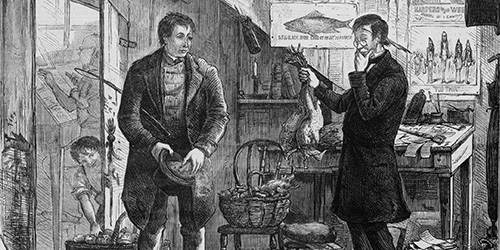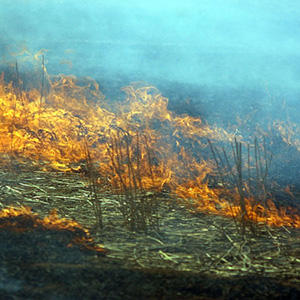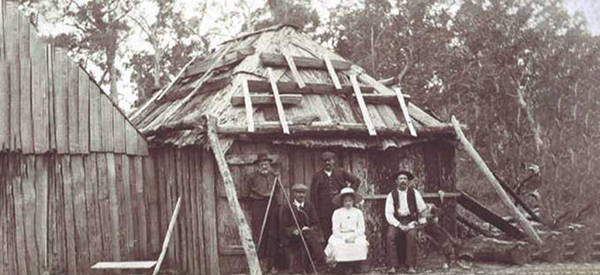Modern society attributes many unique things to Australia: Boomerangs, kangaroos, wallabies, the Outback, and the Sydney Opera House are some of the most iconic Australian symbols that the world associates with the country today.
Few are aware, however, of the long, rich, and often shocking history dating back to the founding of Australia as a penal colony.
When the first fleet of British ships arrived in Sydney, South Wales, in 1788, the passengers were mostly convicts being essentially “dumped” in a strange new world. With few supplies, and indifference to their well-being by the British, this ragtag group was forced to quickly learn how to survive on their own.
Each convict was given two years’ rations, one year worth of clothing, and little else. Few of the convict settlers had any agricultural experience or other skills that would make building a self-sustaining colony possible.
Mostly through trial and error, the Australian settlers began to thrive in their new home with a barter economy and new agricultural methods, despite harsh punishments by their captors and the threat of deadly diseases.
A Barter Economy Was Favored
Each colony was led by a British governor, who was appointed by the monarchy. While the British used the pound sterling as currency, the colonists did not Instead, the colonists relied on a barter economy with rum, corn, and wheat becoming the most desirable forms of currency.
Instead, the colonists relied on a barter economy with rum, corn, and wheat becoming the most desirable forms of currency.
Related: 10 of the Best Bartering Items if the Grid Goes Down
Harsh Punishments Led To Revolts
Perhaps not surprisingly, the colony of convicts had its share of crime and undisciplined citizens. Theft of food and other provisions, as well as lack of motivation on the part of the settlers to help build a sustainable colony, led to extreme measures by the governors and soldiers to bring order and discipline to the settlers.
Instead of creating productive and well-regulated groups, however, the severe punishments led to a series of bloody revolts against the governors.
Related: What Do You Do When Someone Asks For Food in a Crisis?

New Agricultural Methods Had To Be Developed
The climate and soil of Australia was much different from what the settlers—mostly British and Irish—were accustomed to, so new ways of farming and irrigation had to be developed.
The lack of irrigation was solved by creating rock pools that filled with fresh water, while the Aboriginal practice of “fire scrubbing” (using fire to clear land and regenerate flora) was adopted to increase the land’s food production.
Deadly Diseases Were Rampant
When the settlers landed on their new land, they knew they faced many dangers which they had to survive—starvation, dehydration, and death from exposure were well-known threats. Due to a lack of scientific understanding, however, the settlers were unprepared for perhaps the deadliest situation they would face: The rampant spread of fatal diseases, made worse by a lack of medical supplies.
Epidemics including smallpox, chickenpox, typhoid fever, tuberculosis, measles, influenza, and cholera killed many of the early settlers, but their death toll was nothing compared to that of the Aboriginal people; over half of the indigenous population died from European diseases in the first few years of settlement.
Related: Deadly Legionaries Disease Spreading Through Air Conditioning Units and Water Tanks
Applying These 4 Lessons To Your Survival Plan
Here are some key takeaways from the Australian pioneers that you can add to any modern-day survival plan:
- Don’t count on your cash or debit/credit cards; many survival situations are made worse by the lack of electricity, partly because we need power to access our bank accounts via cards or to withdraw cash. In long-term survival situations, your cash and cards will only be good for kindling; stock up now on barter items such as sugar, alcohol, salt, and other goods that can be traded for the things you and your family need.
- Beware of martial law; in chaotic situations, those in charge may revert to martial law to keep the peace. Be ready for the prospect of having your daily activities curtailed, as well as strict curfews and rationing. Within your own prepper group, however, remember that while it is important to make sure everyone is a productive member of your community, overly harsh punishments may lead to revolt.
- Diversify your agricultural methods and tools; if you’re preparing to bug-in at your home with your well-producing garden, bear in mind that certain circumstances – fires, severe weather, or even hostile groups – may force you to start growing food somewhere else in a climate much different from what you are accustomed to. Familiarize yourself with a variety of irrigation and gardening techniques, so you can have a fresh supply of food no matter where the situation takes you.
- You can’t shoot germs; while self-defense is vital, some preppers fail to prepare for deadly diseases and epidemics. Protect yourself and your family by stocking an ample supply of sanitary products, bleach, gloves, masks, garbage bags, and other items you can use to disinfect, dispose of waste, and prevent sicknesses from spreading.
Bonus Survival Tip:
In every survival situation, it’s important to familiarize yourself with the local plant life. Consider what plants grow well in your climate and then prepare a gardening plan that includes both plants for food and plants that you can use to create natural remedies. By growing your own grocery store and pharmacy, your odds of not just surviving but thriving, dramatically increase.
You may also like:
 What the Pioneers Stockpiled To Survive Winter
What the Pioneers Stockpiled To Survive Winter
The Native American Food That Is Even Better Than Pemmican (Video)
11 Food Storage Lessons Learned from WWI















Very interesting article. As to the lessons, they are things that people should be aware of by now, but even people who think they know it all, often overlook, especially about change in food production methods and disease. Back to food production, which is the number one thing needed to survive, I suggest that if you are not growing something, even indoor next to a window, you better get started. Keeping plants alive is not something people are born knowing and you better know what are the wild edible in your area, because it may come a time when that is all that is available for most people. The vast majority of the population have no idea that the weed they were used to killing, to have a “incredible” lawn may just save their lives as food and as medicine.
Dont you need my address to send me the book or is it digital ?
Very interesting article, however I find it deceiving for Rebecca to call the prisoners pioneers! These people were not there by choice, except for the governors, other than maybe making the choice to be shipped there in luo of remaining in some dungeons in worse conditions or behind bars in general in worse conditions! Nor were the majority of these people the cream of the crop unless they were some kind of political opponent or someone unjustly accused or framed etc. definitely not pioneers, and not actual colonies, the crown cared nothing for them and could have cared less if they had all died!
I agree they persevered under fairly extreme circumstances, and probably forged their own way but at what cost to the indigenous people? Did they get along until the crown realized they were thriving and then they came down upon the locals and indigenous to claim it much like was done with the Americas?
Most British colonies were set up at the extreme detriment to any local indigenous population and thus for a great many years indigenous were treated like cattle that were not even worth saving and it was for the most part not just the government but in large part to the settlers as well because they saw themselves as superior and therefore the people did not matter had they cared they would not have cleared the lands of the people but instead co-inhabited the land with the indigenous!!
What do the Australians do for protection now, since the gun confiscation?
Hi DQ – All gun were not confiscated – the ownership of semi-auto weapons is highly regulated- separate class of license to bolt action rifles ( under need to own – ie pest control ) – you must be a member of a rifle club to own a rifle – handguns are under a seperate licence – 6 month training period , then application with gun club recommendation. 1 st only allowed 1 handgun – so choose wisely – no concealed carry even for off duty police – ( most don’t have a gun license anway)